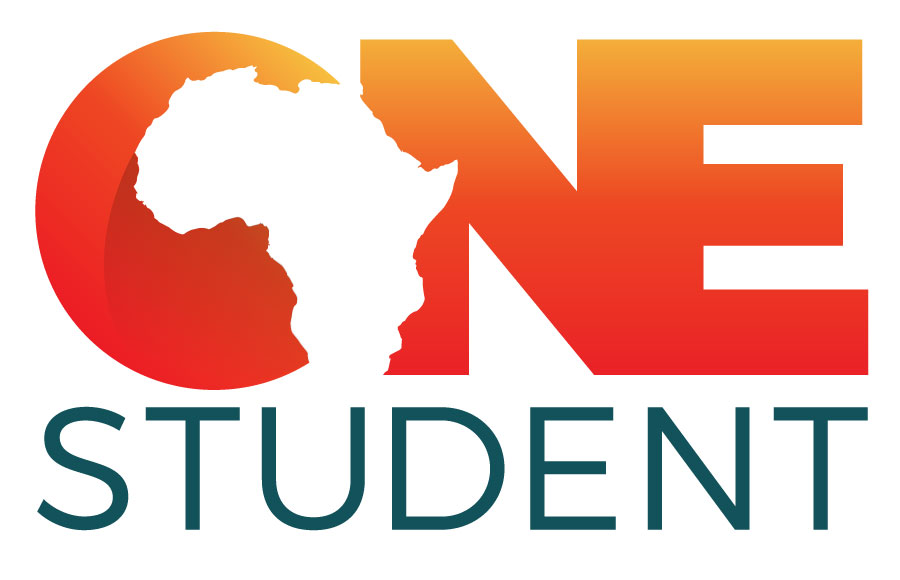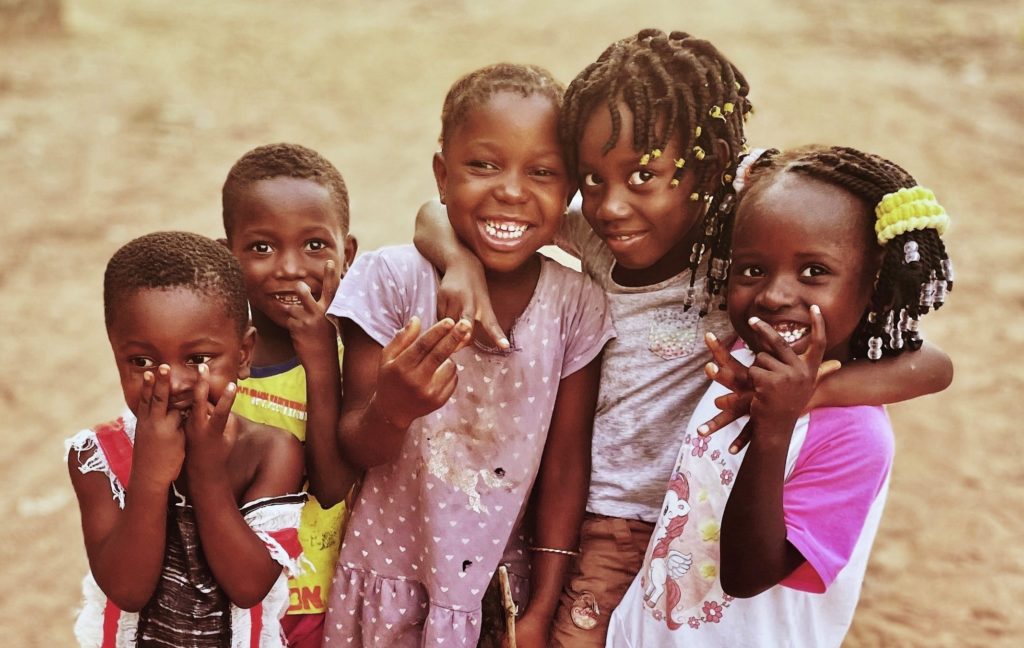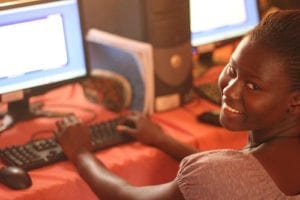Kids are kids, no matter where they are in the world. But their lives can look very different depending on where they live.
In countries like Guinea-Bissau in West Africa, for example, children like to spend their free time playing soccer – but not in the same way as in the United Sates. In Guinea-Bissau, kids use any round object they can find (even small rocks) as a ball. For a soccer field, they’ll often use any dirt patch they can find in their town or village.
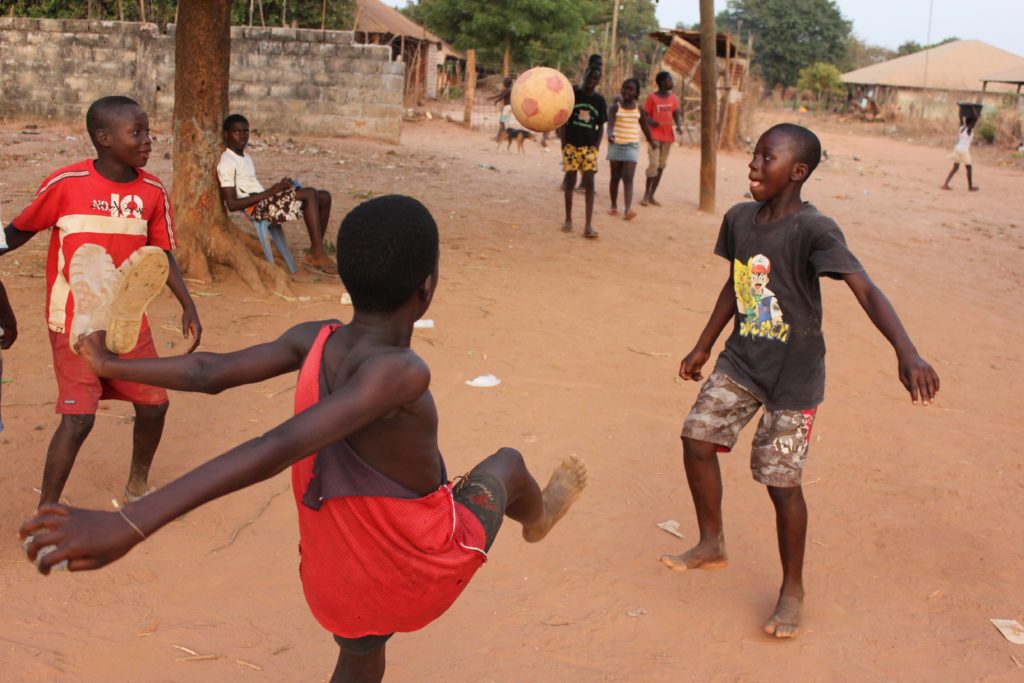
In the states, kids get sweaty faces running around grassy city parks. In Guinea-Bissau, kids get sweaty faces hauling buckets of water from community wells to their homes.
In the states, kids get time off from school during holidays. In Guinea-Bissau, kids are often out of school for months at a time when teachers go on strike after the government fails to pay them.
You may expect children in Guinea-Bissau get discouraged by the challenges they face. But smiles are still common, games are still played, and joy is still found in the friendships and experiences around them.
Here is what a typical day is like for children in Guinea-Bissau.


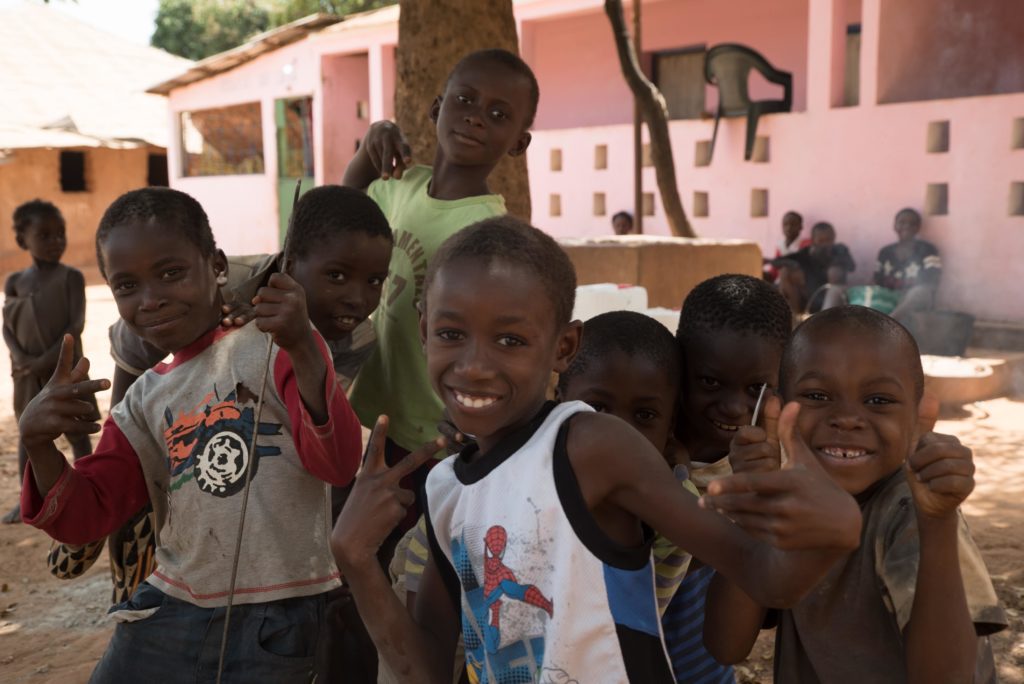
Chores
Most families in Guinea-Bissau wake up at 6 a.m. or earlier. The mornings are marked with the hustle and bustle of a household getting ready for the day. Children are sometimes responsible for sweeping the floors of the home, collecting water, and assisting with feeding animals, cooking, or cleaning before heading off to school.
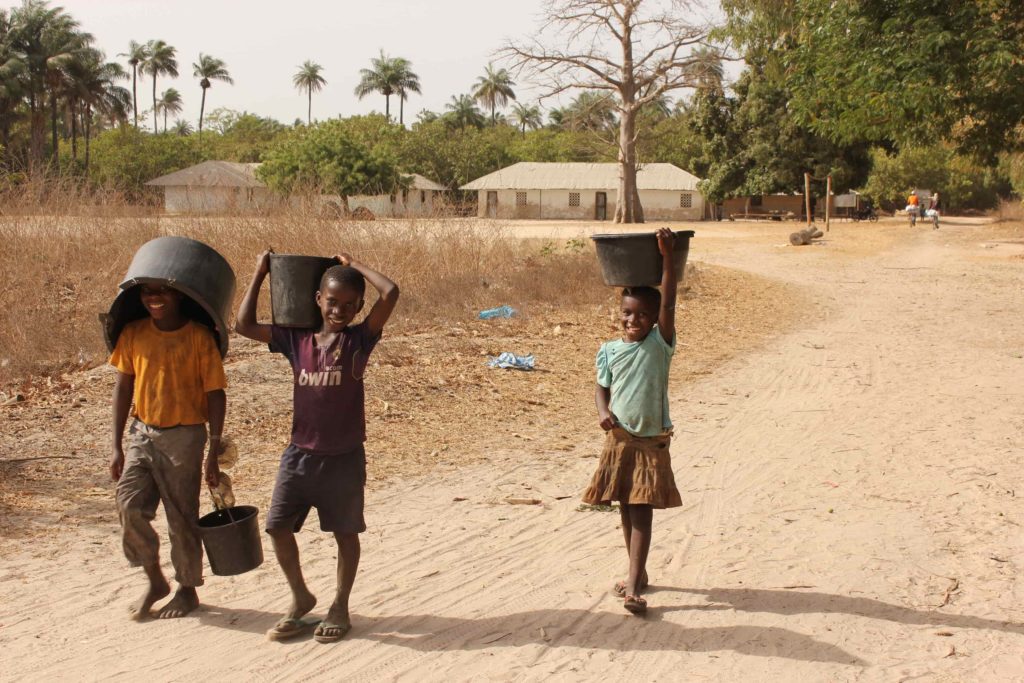
School
Children in Guinea-Bissau typically only attend school for four hours a day. Some of them must walk 3 miles or more to get to their school. And in many villages, those “schools” are little more than a bunch of wooden benches surrounded by a thatch wall.
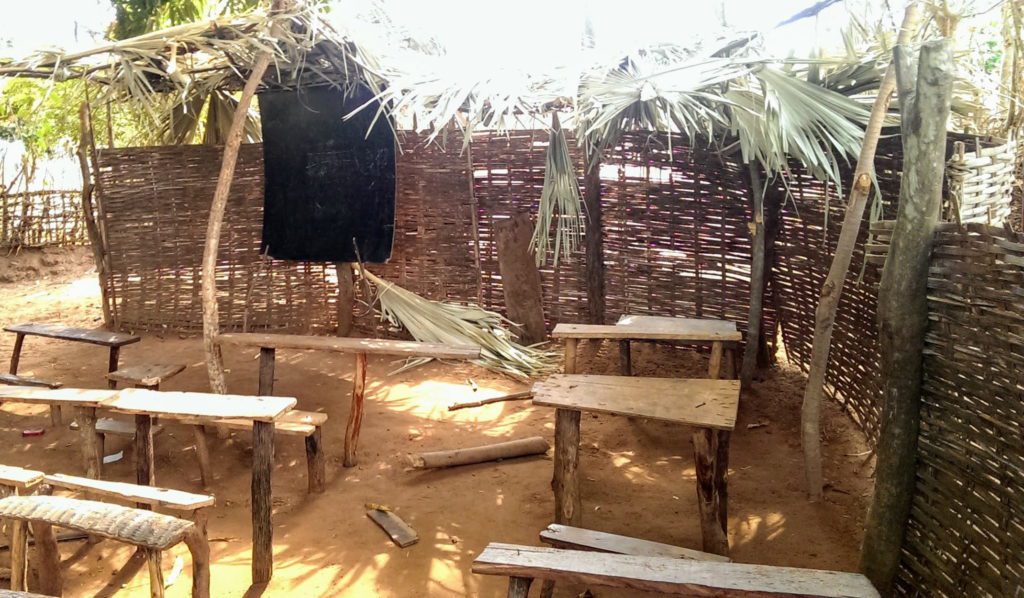
The Guinea-Bissau government spends less than 12% of its budget on education (less than half the percentage of comparable countries). The government often fails to pay its teachers, leading to months-long teacher strikes. As a result, 43% of the population is illiterate and less than 25% of students in Guinea-Bissau complete high school. In fact, the average person in Guinea-Bissau has only six years of formal education.
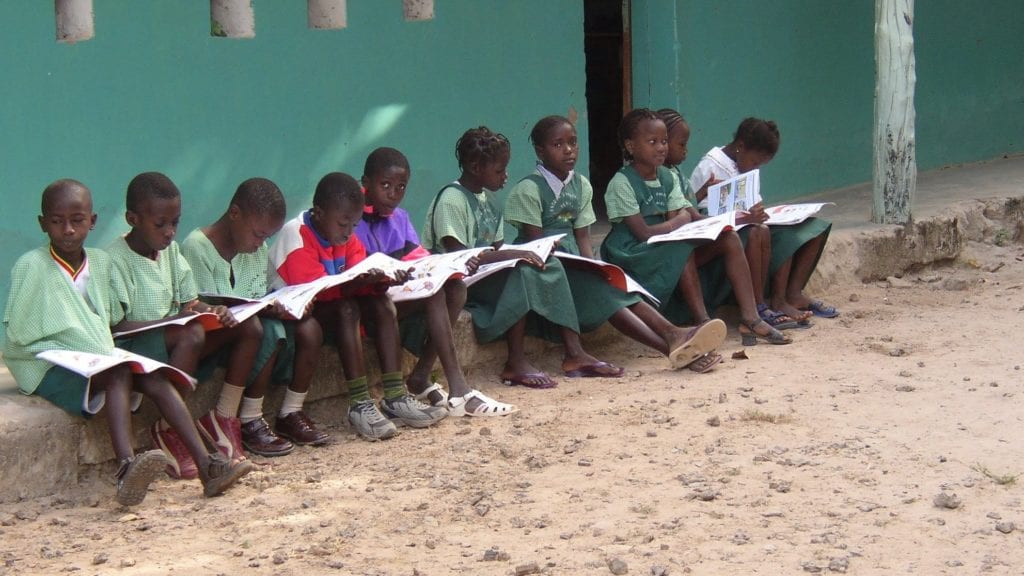
Food
Families in Guinea-Bissau typically have large pots of rice with cooked vegetables and a small piece of chicken or fish for meals. Children are often responsible for helping cook and prepare the food. Once it is ready, everyone eats out of one giant bowl!
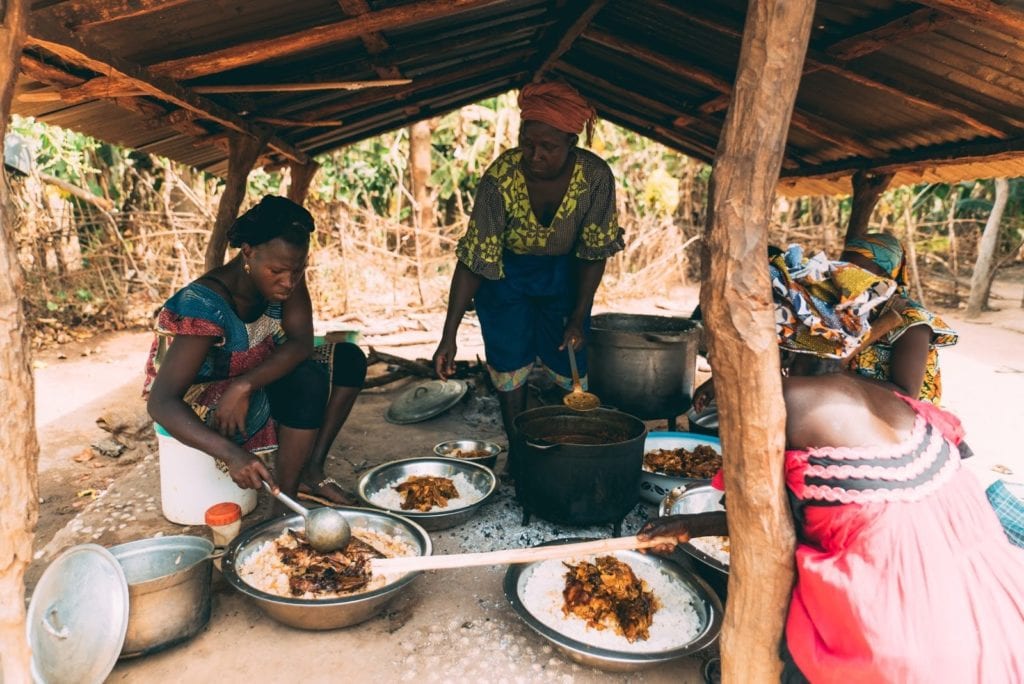
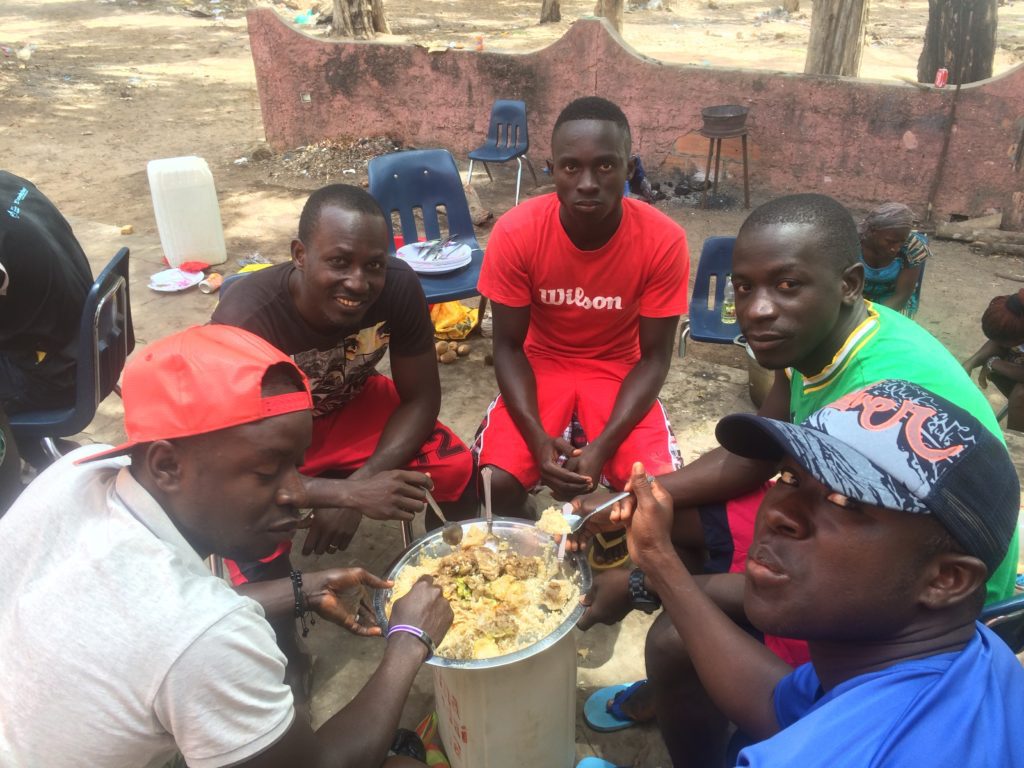
Unfortunately, the lack of access to a reliable income (most people live off less than $2 a day) means that families are not always able to have access to the food they need to live a healthy lifestyle. As a result, 25% of people in Guinea-Bissau suffer from chronic malnutrition. In some areas, the percentage of households that are food insecure rises to 51%.
Play
Soccer: Ask a child in Guinea-Bissau what their favorite thing to do is and chances are they will enthusiastically respond with “futbol!”. To children in Guinea-Bissau, any open space is viewed as a soccer field. When balls aren’t available, children will roll up old clothing or almost anything else to make a ball. Regardless of what is being used as a soccer ball or field, games are intense and enjoyed by all.
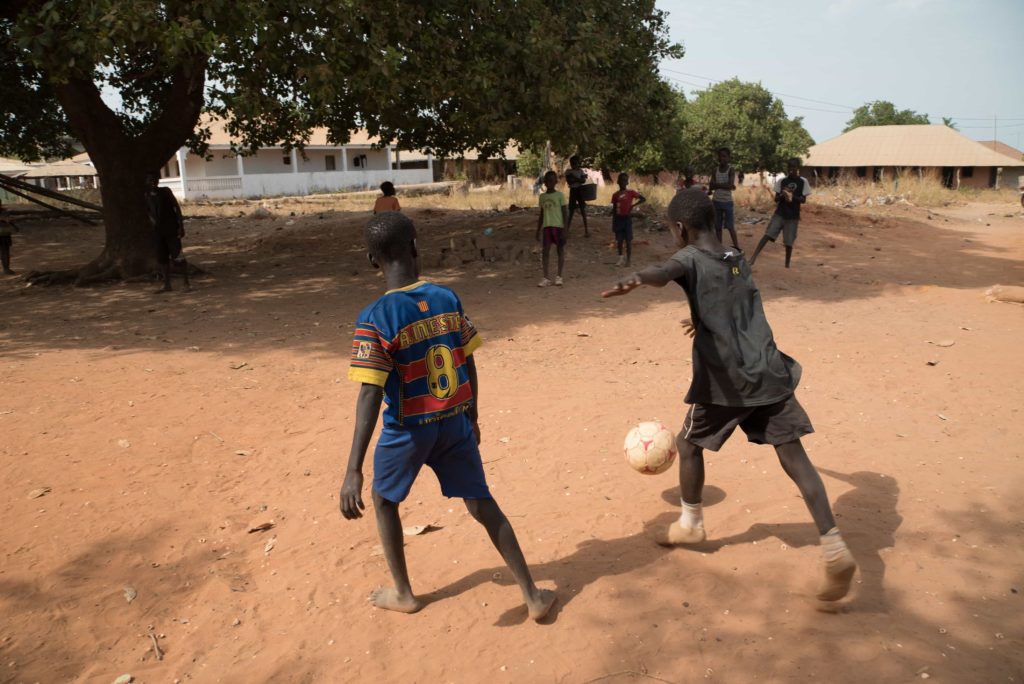
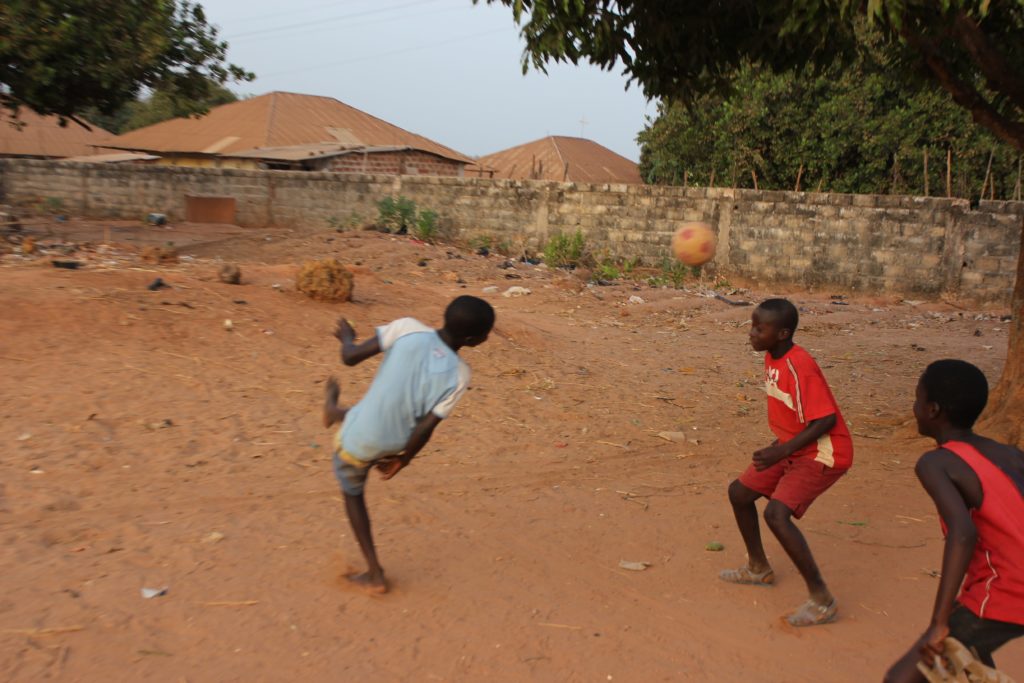
Jump Rope: any old piece of rope will do.
Roll the Tire: This game is simple. Kids find any discarded tire lying around and roll it along a path. Sometimes they use a stick to push it along.
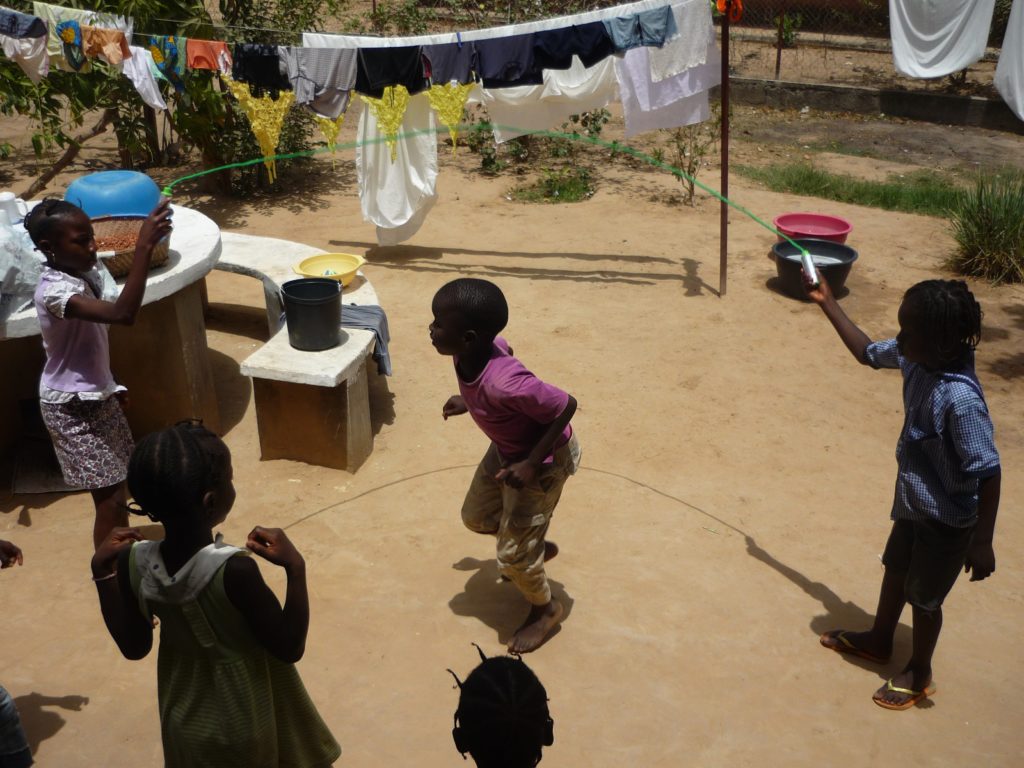
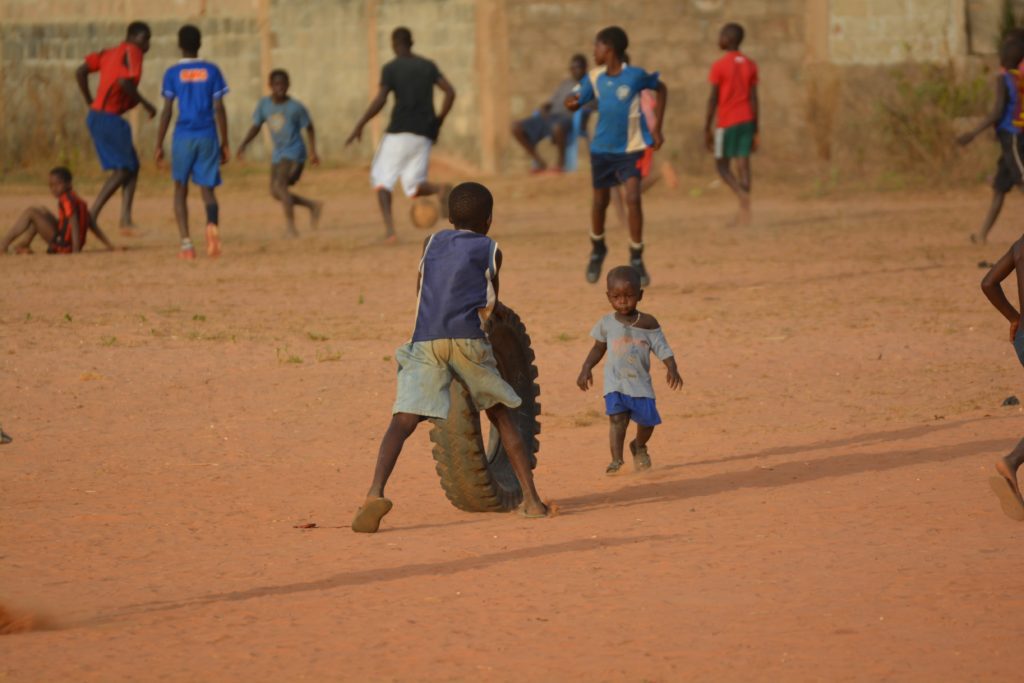
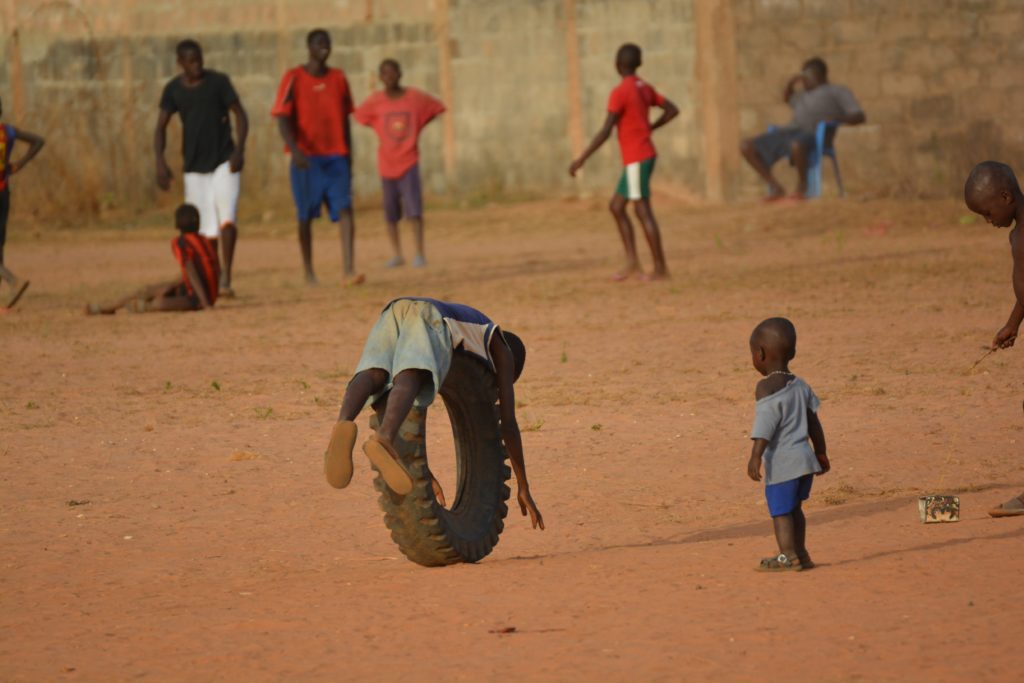
Dodge the ball (or whatever else you can find): A lack of sports equipment doesn’t mean a lack of fun! Children in Guinea-Bissau enjoy a different version of dodgeball. In Guinea-Bissau, the game is often played with a broken flip-flop instead of a ball! It may look like a bunch of kids angrily throwing things at each other, but they’re actually just playing a game.
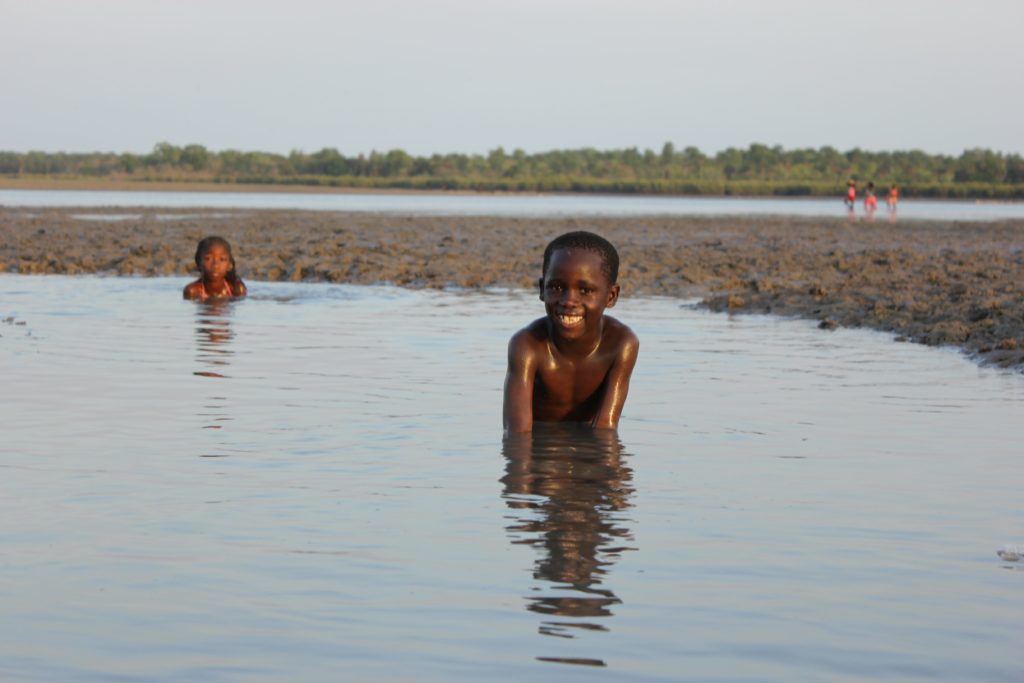
Evenings
After a long day of helping at the home, attending school and playing an assortment of games, children are often in need of a bath. If there is water to spare, kids use a bucket shower to rinse off with cold water. The nights usually end late for families in Guinea-Bissau. Most people don’t go to bed until 10 or 11 p.m. (including kids).
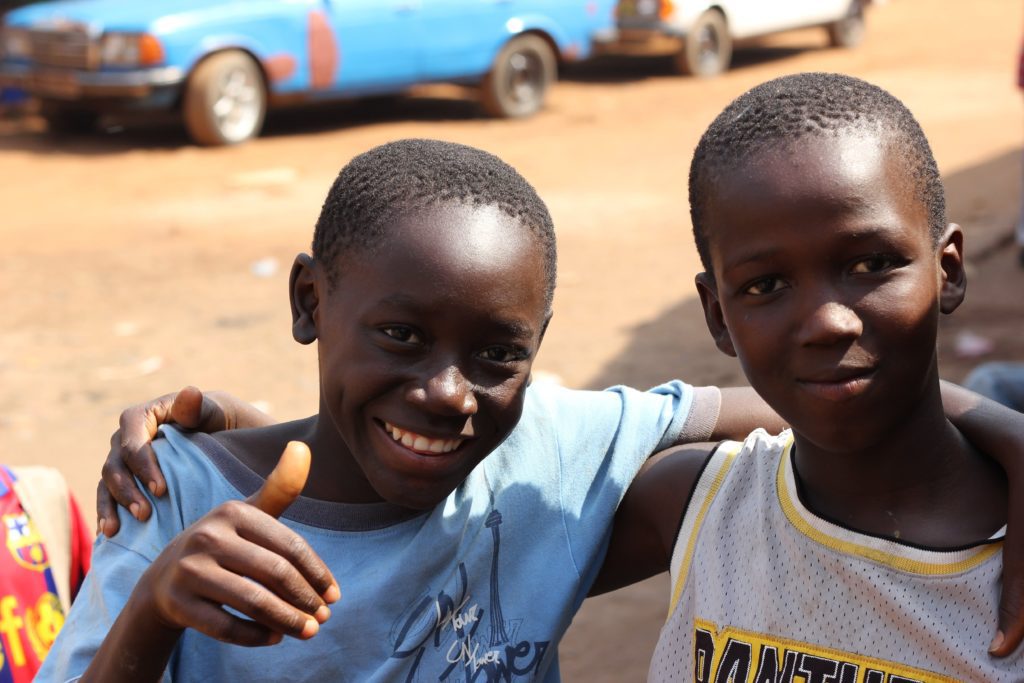
Many nonprofits have looked at these children’s barefoot soccer games, lack of education, and poor nutrition – and they try address the issues through handouts. Some organizations have snapped pictures of hungry children in ragged clothes and used these images to elicit donations from sympathetic donors. However, these images often lack the context of why kids’ lives are the way they are. In our experience, we’ve found that long-term investments have a much greater impact than short-term handouts. These children, and their parents who provide for them, need opportunity, not charity.
With the skills learned at the WAVS vocational schools, West Africans are able to provide for themselves and their children.
You can give young men and women the opportunity to learn a new job skill by helping keep tuition affordable. Each student pays tuition for the courses they take at WAVS vocational schools in Guinea-Bissau, but this only covers a portion of the total cost. The remainder of the costs are covered by generous donors like you. Join the One Student community and make an impact in the lives of young people in Guinea-Bissau, One Student at a time.
